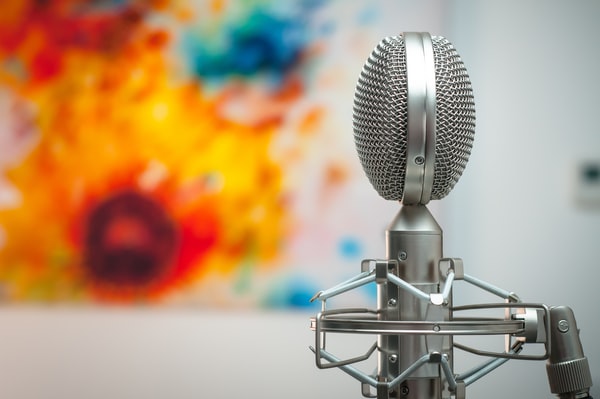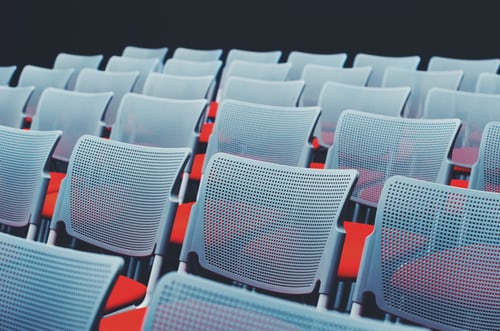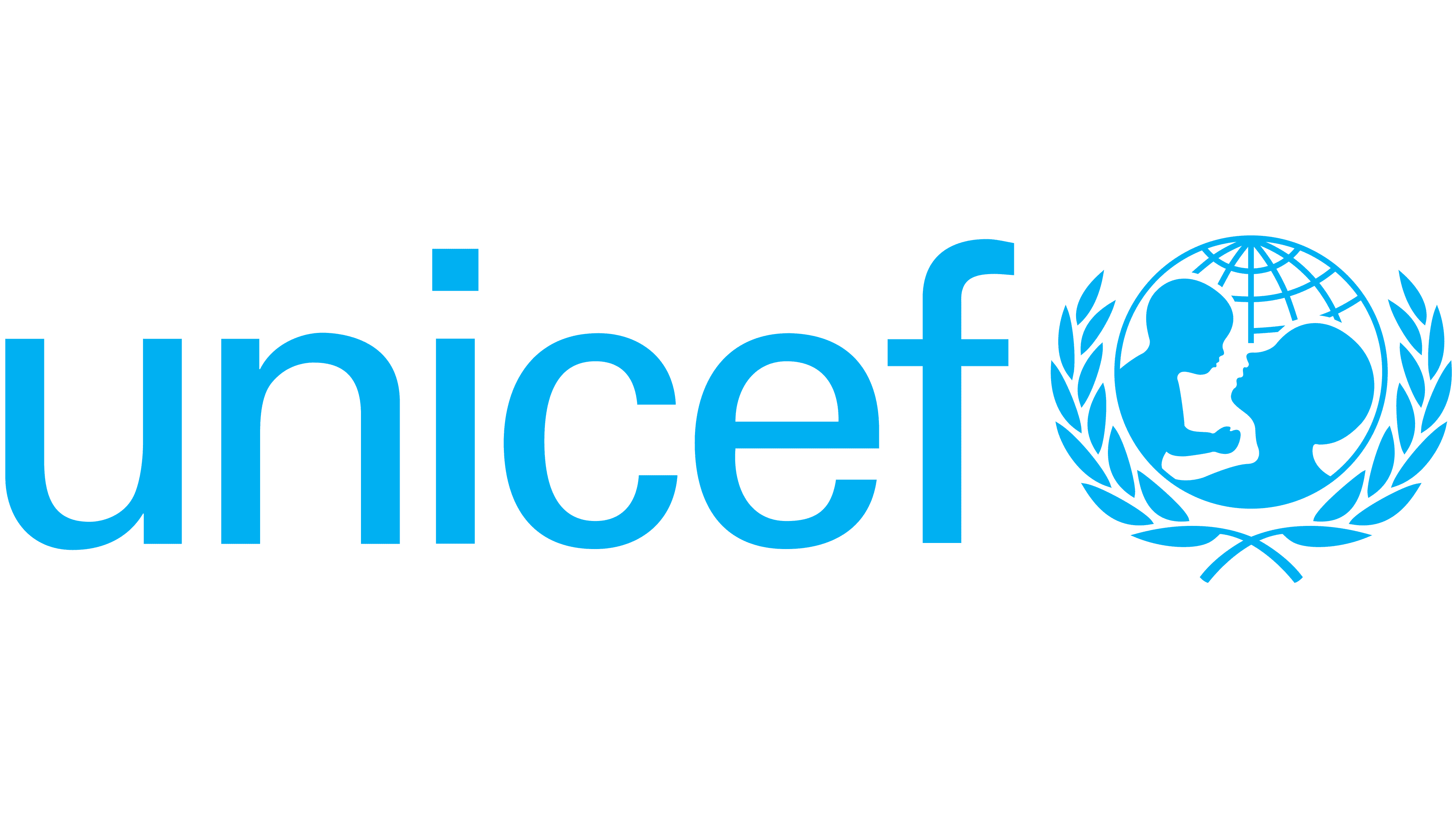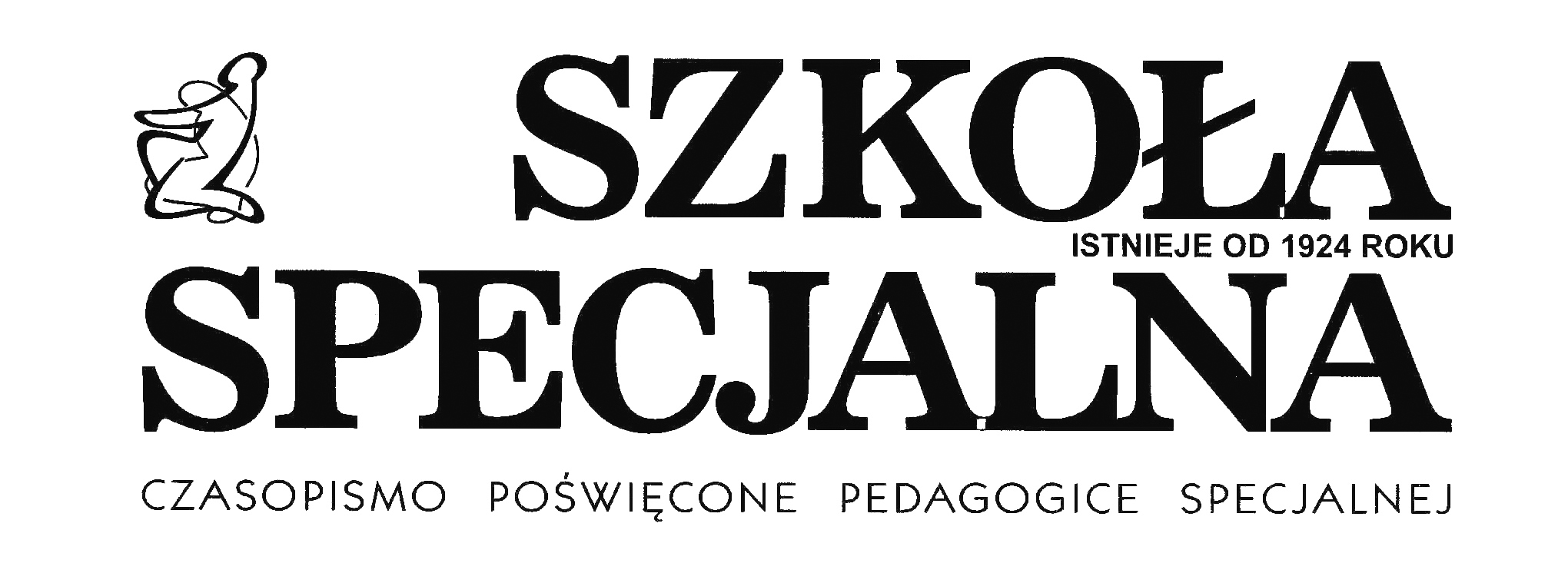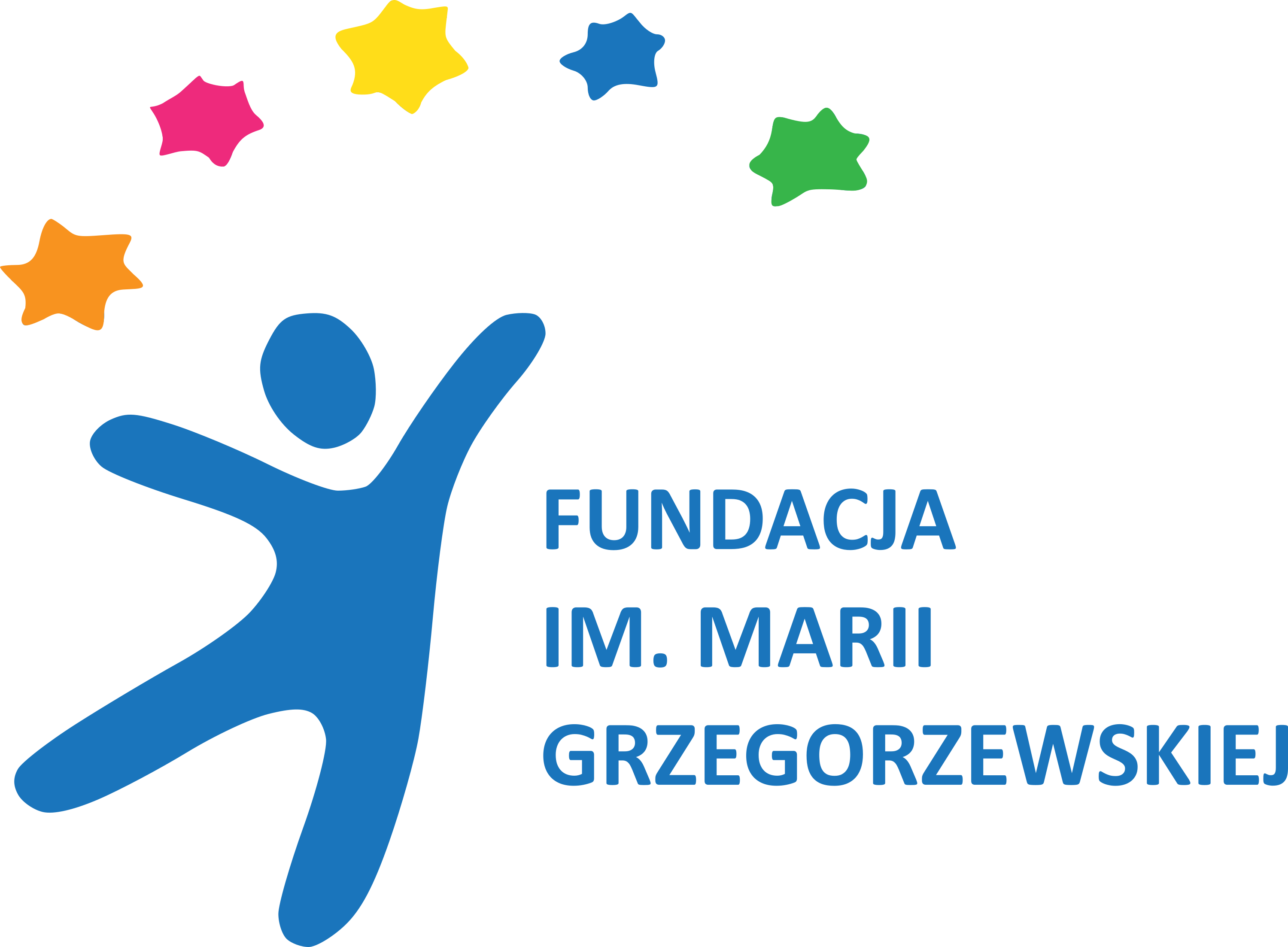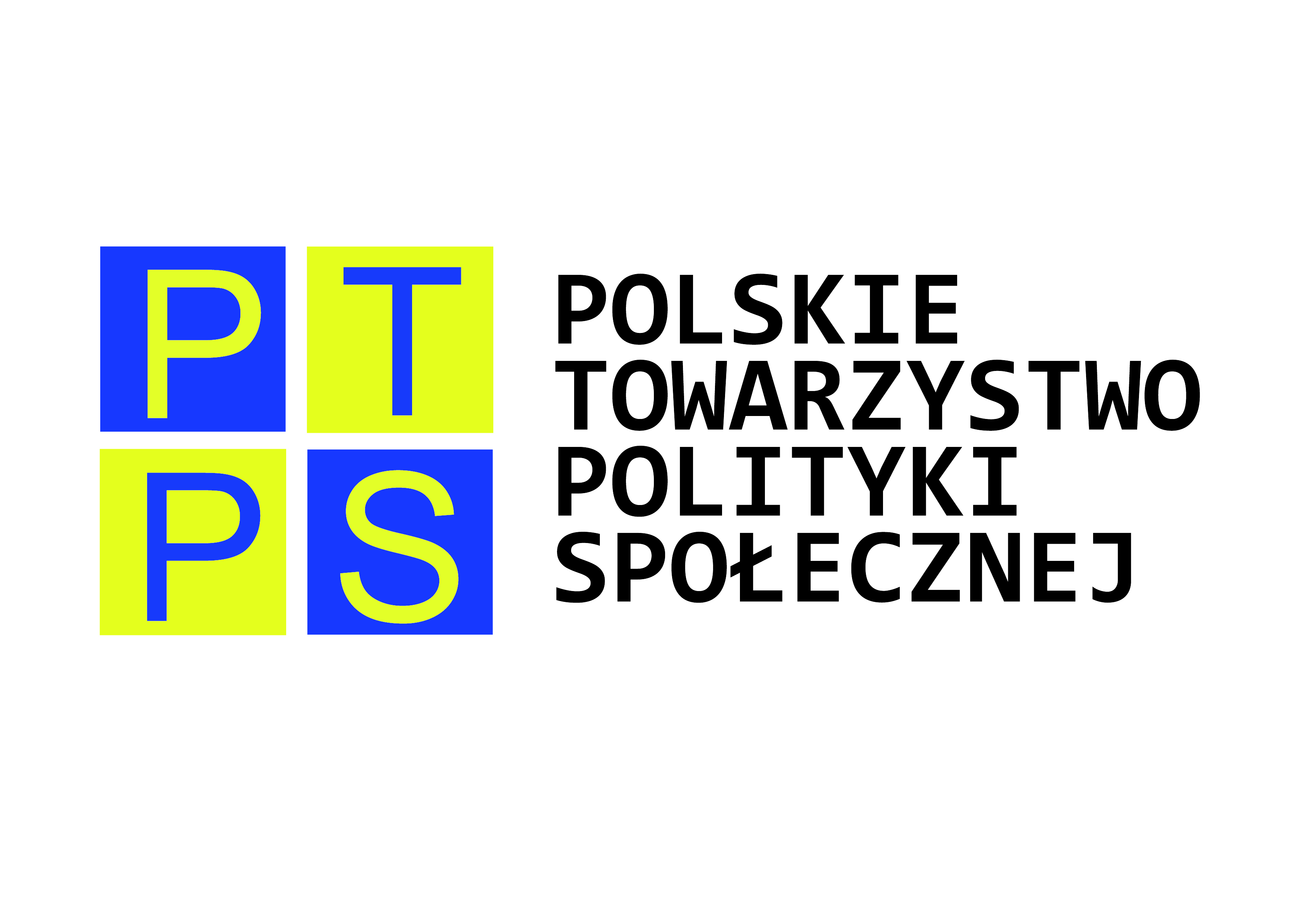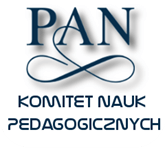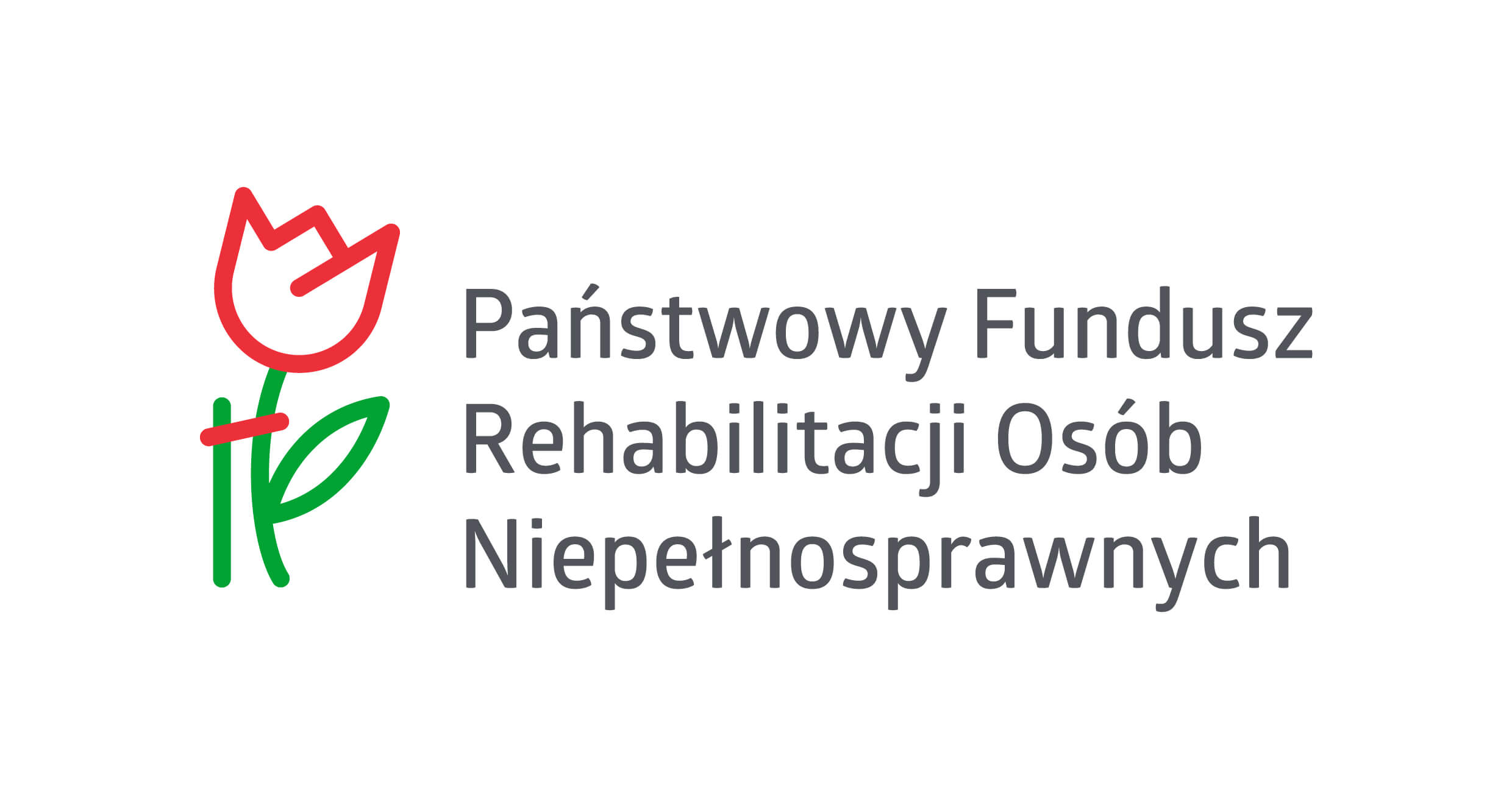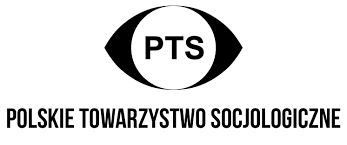ANNOUNCEMENT ON THE POSTPONEMENT OF THE CONFERENCE
Dear Madam/Dear Sir ,
Due to the situation in Ukraine and in a solidarity with our neighbors, we have decided to postpone the date of the planned conference to
December 15th, 2022.
The conference will close the celebrations of the year of Maria Grzegorzewska and the 100 years of the university. At the same time will be the opening event of
New Century at the Maria Grzegorzewska University
in Warsaw.
We would like to thank those who have already registered for the conference. All persons interested in the issues of the conference are invited to register.
The International Interdisciplinary Scientific Conference in the PERSON Series
Acceptance, Participation, Social Solidarity ‒ an interdisciplinary challenge in creating a society for all - 15.12.2022
The Maria Grzegorzewska University in Warsaw 1922-2022
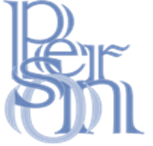
- Acceptance
- Participation
- Social Solidarity
This Conference makes reference to the scientific meetings inaugurated in 2003, the year which the Council of the European Union declared the European Year of People with Disabilities.
It was at the same time that we started to organize international Conferences as part of the PERSON series at the Maria Grzegorzewska University. During these Conferences, we frequently reflected on the guiding idea of the patron of our university and founder of special education in Poland – P rofessor Maria Grzegorzewska, concerning the Archimedean point of the human, i.e., the phenomenon by which one can develop as a PERSON.
In 2022, the Maria Grzegorzewska University (APS) will celebrate its jubilee, the 100th anniversary of its existence. We wish to reflect on contemporary issues from an interdisciplinary perspective while referring to the humanistic, timeless ideas of the patron of our university, there is no cripple – there is a human. These ideas are outlined in three areas: acceptance, participation and social solidarity, which are developed in the following detailed concepts:
- Acceptance - the identity of the Another, quality of life, triggering potential, autonomy
- Participation - normalization, inclusion, cooperation, self-actualization
- Social Solidarity - human rights, responsibility, safety, social belonging
We sincerely invite the representatives of various academic disciplines and practitioners to participate in the Conference. These individuals, by means of created concepts, research and direct professional and social involvement, participate in implementing the humanistic ideas that proclaim that differences give meaning to being together. They also reinforce the endeavours expressed in concern for sustainable development, in which social inclusion is a unique link in achieving the well-being of specific people and entire societies. Ultimately, they lead to reduce social inequality and build a just, inclusive society.
The Conference will be held on December 15th, 2022. Due to the epidemiological situation, the event will be held in-person and online.
The Conference is co-financed within the project Acceptance, Participation, Social Solidarity - an interdisciplinary challenge in creating a society for all, realised in the programme "Excellent Science - Support for scientific conferences" of the Ministry of Education and Science, project no. DNK/SP/512089/2021
The Maria Grzegorzewska University
Maria Grzegorzewska University in Warsaw (APS), derived from the tradition of 1922 Institute of Special Pedagogy established by our patron Maria Grzegorzewska. APS is the place of seeking knowledge, researching truth and fostering culture. To fulfil these overarching criteria we cater for social needs and carry out social mission to foster social inclusion.
The mission of the Maria Grzegorzewska University in Warsaw (APS) is to train future professionals and educators for working with people in need of support. This training is conducted in spirit of respecting people with disabilities and their human and civic rights, understanding and acceptance of differences, treating differences, such as disability, as an inalienable element of human condition and including people with disabilities in the life of society as completely equal citizens.
In spirit of tolerance and opposition to all forms of discrimination, all students of our University are trained and prepared to carry out professions known as professions of social trust. The intention of APS is to educate enlightened and creative professionals, who care for the development of their own personality, scientific passions and professional practical skills - as well as for the comprehensive development of people and environments they work with. The University as a community of students, doctoral students, alumni, academic and administrative staff provides good practice in ethical behaviour both in academic and public life ensuring the alumni adhere to high ethical standards.
APS serves community expanding the offer of educational and therapeutic provided by academics and student volunteers.
We read APS as a list of core values we cherish
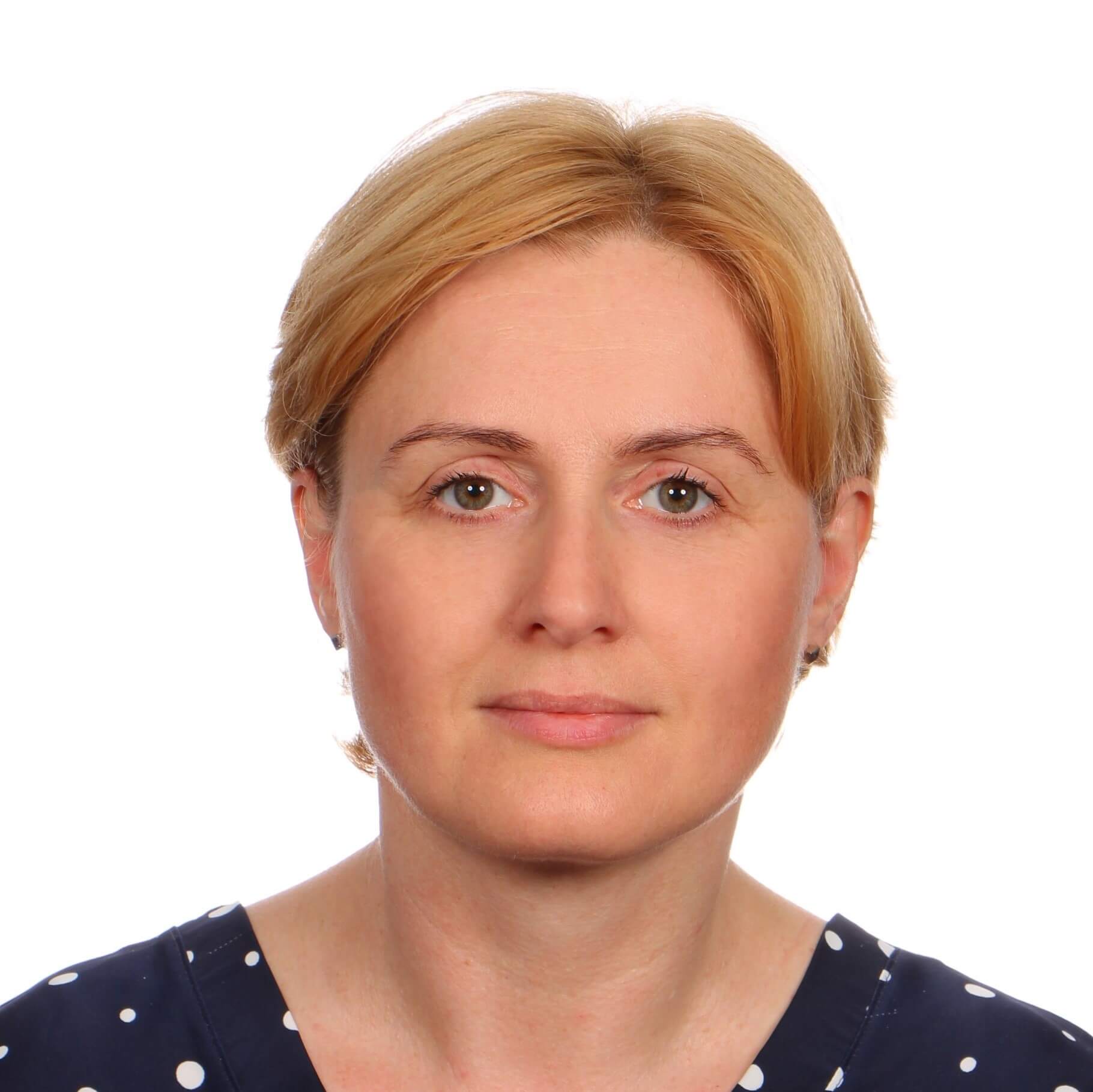
dr Ewa Dąbrowa
President of the Committee
Institute of Education, ,
Department of Basic Education
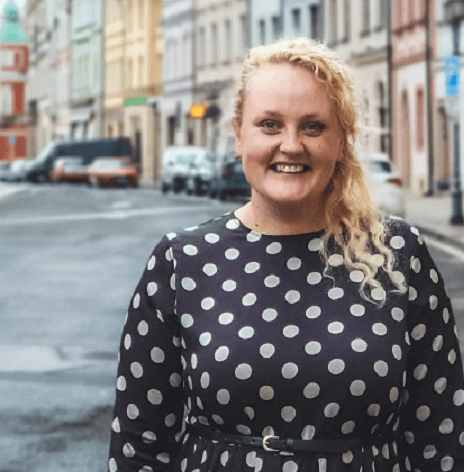
dr Diana Aksamit
Vice-President of the Committee
Institute of Special Education, Department of Education and Rehabilitation of Persons with Intellectual Disabilities
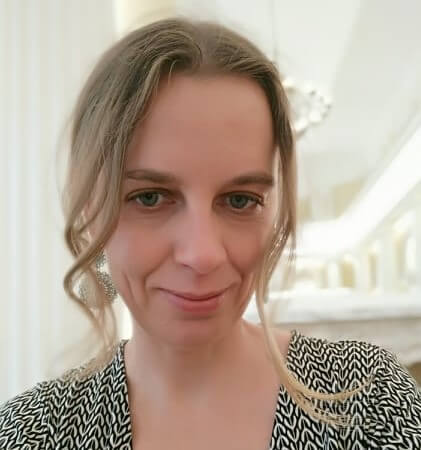
dr hab. Anna Perkowska Klejman, prof. APS
Institute of Education, Department of Social Education
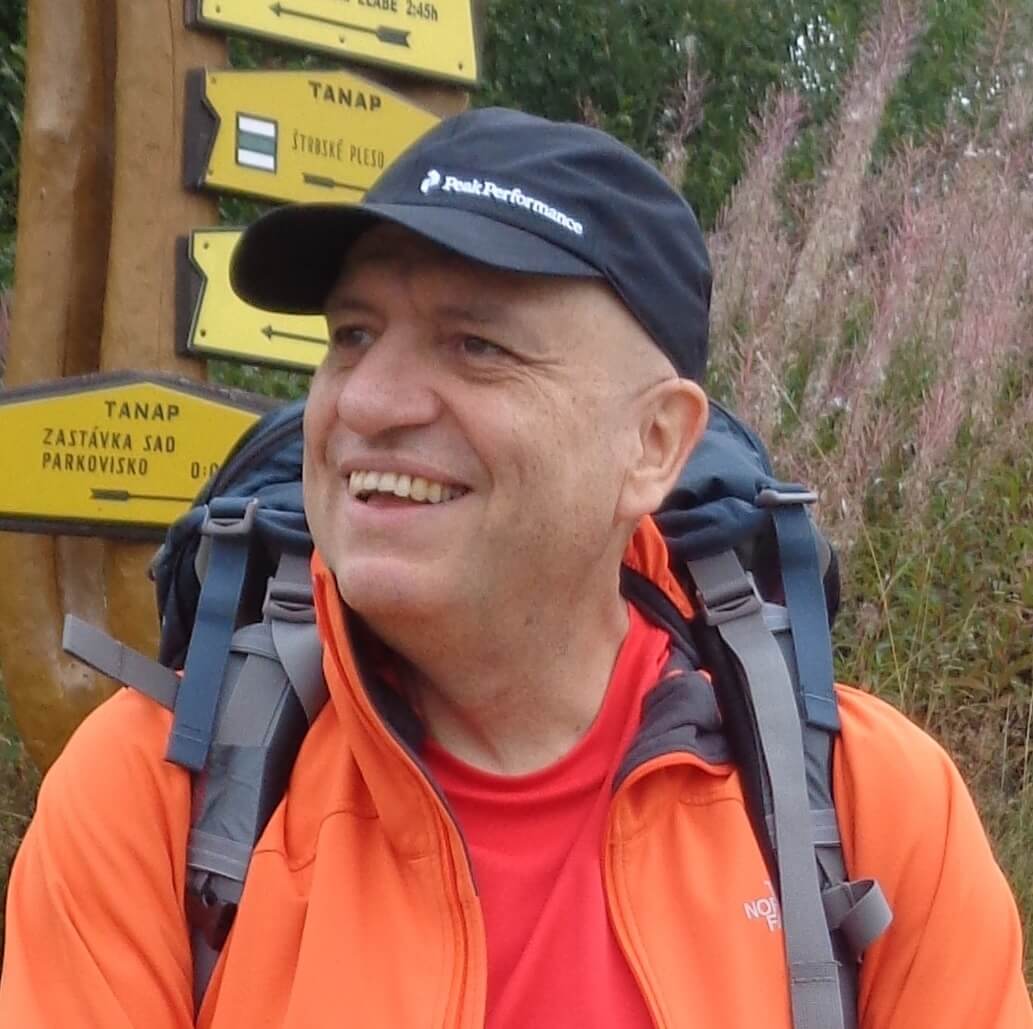
dr hab. Bronisław Treger, prof. APS
Institute of Philosophy and Sociology, Department of Sociology of Social Change
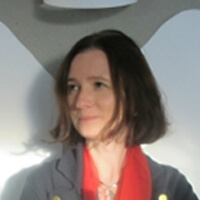
dr Magdalena Janota Bzowska
Institute of Art Education, Department of Theory and History of Art
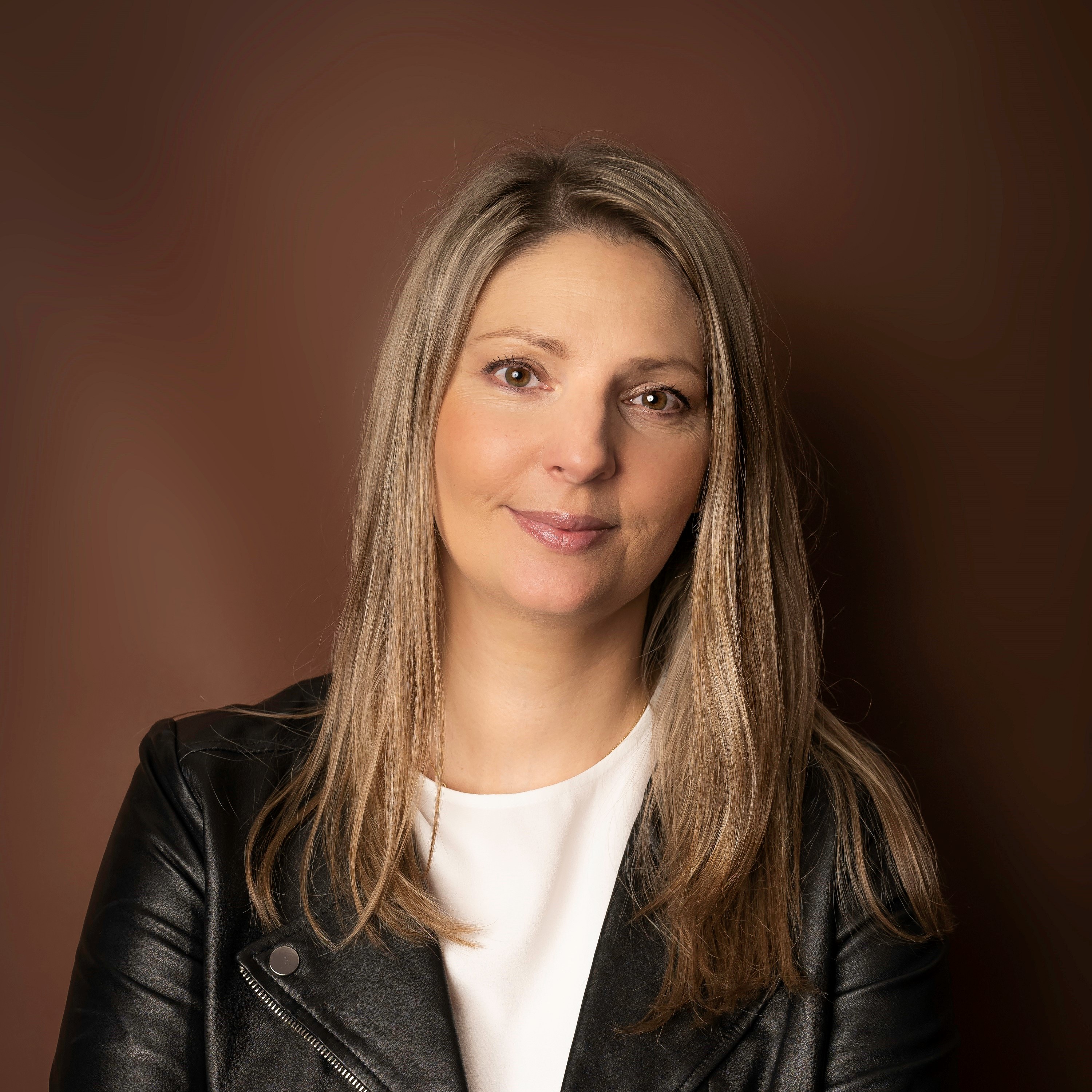
dr Katarzyna Nawrocka
Institute of Special Education, Department of Rehabilitation Psychopedagogy
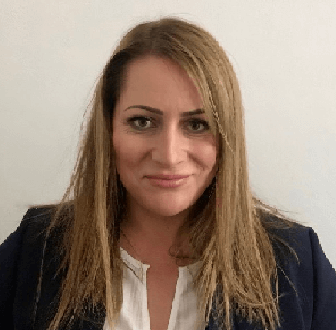
dr Joanna Moleda
Institute of Special Education, Department of Rehabilitation Psychopedagogy
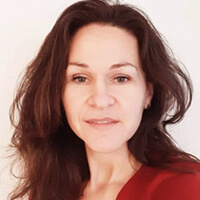
dr Anna Więcek-Durańska
Institute of Psychology, Department of Clinical Psychology of Adults
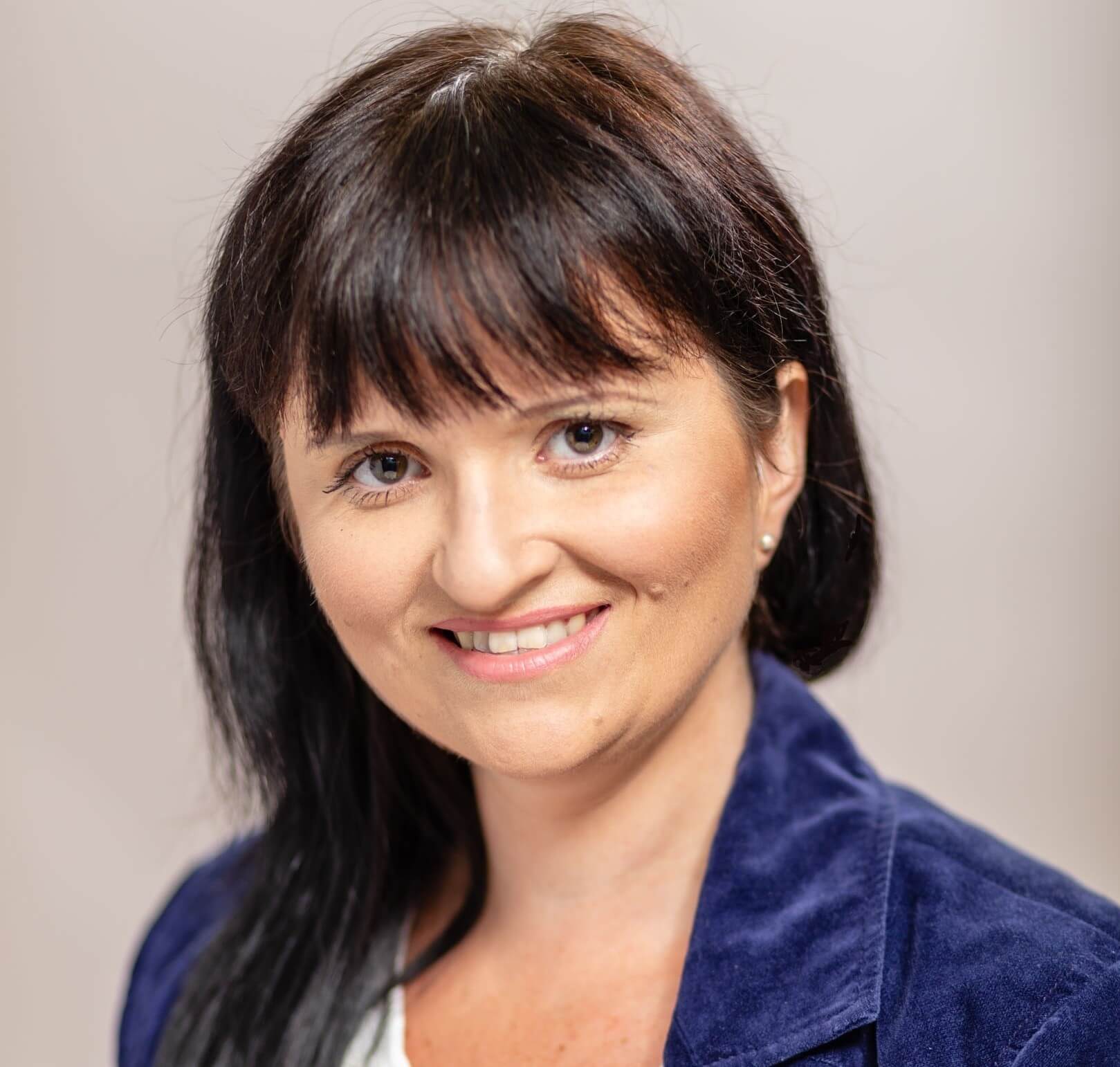
dr Iwona Konieczna
Institute of Special Education, Department of Education and Rehabilitation of Persons with Intellectual Disabilities
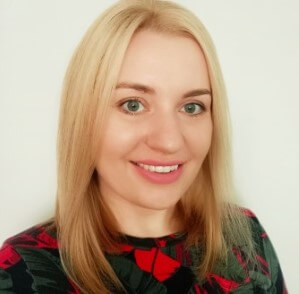
dr Katarzyna Kruś-Kubaszewska
Institute of Special Education, Department of Education and Rehabilitation of Persons with Intellectual Disabilities
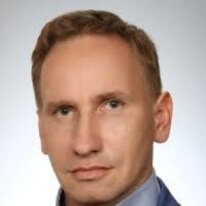
dr Radosław Piotrowicz
Institute of Special Education
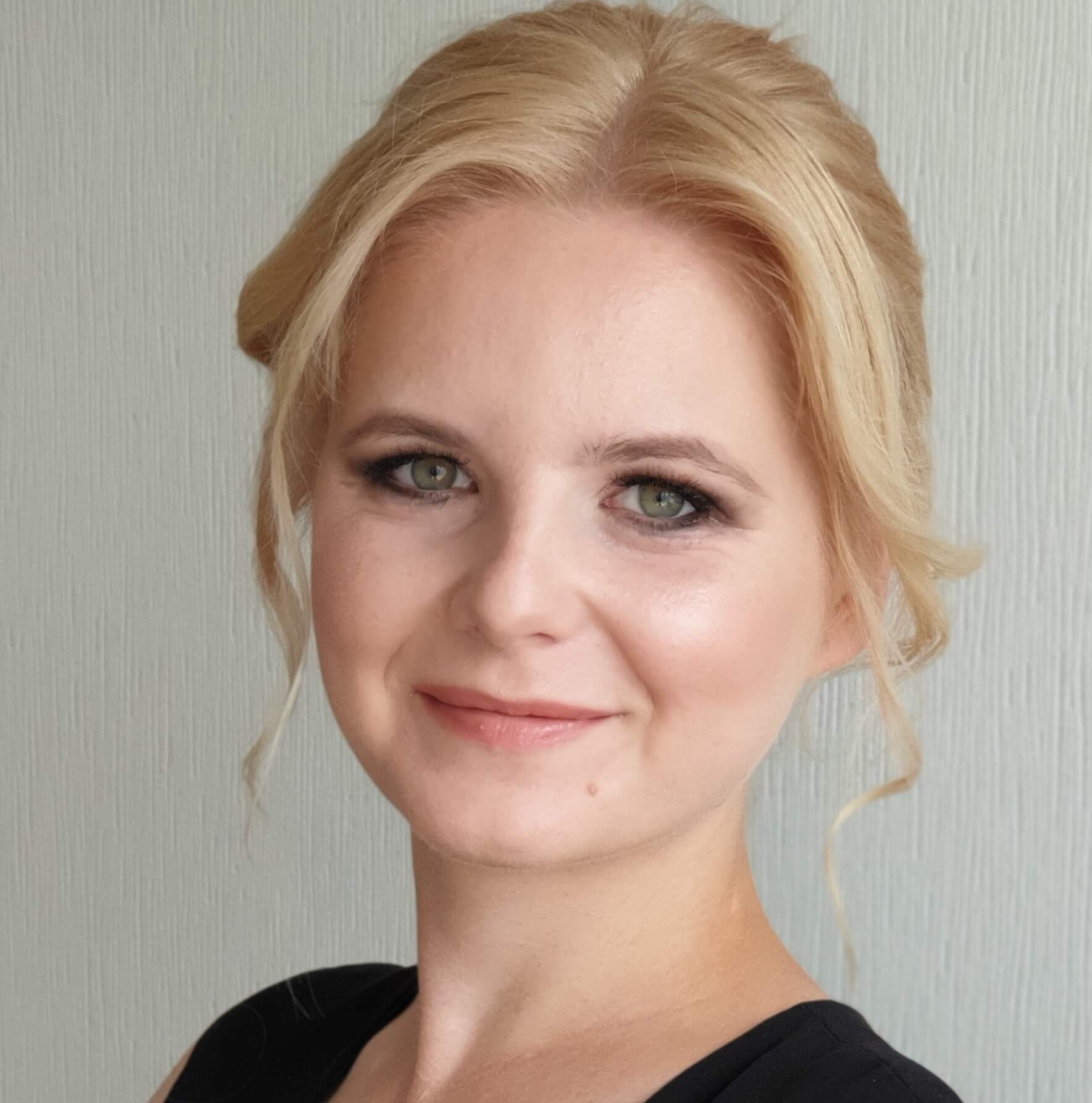
dr Milena Miałkowska-Kozaryna
Institute of Special Education
.jpg)
dr Agnieszka Żabińska
Institute of Special Education
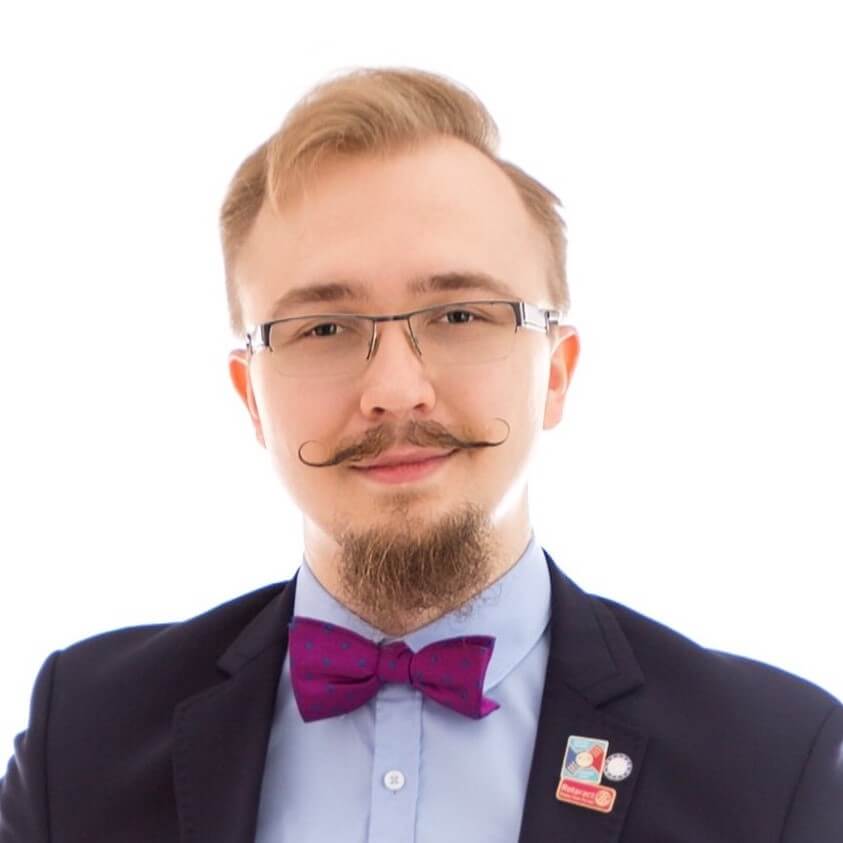
mgr Adrian Kabat
Doctoral School
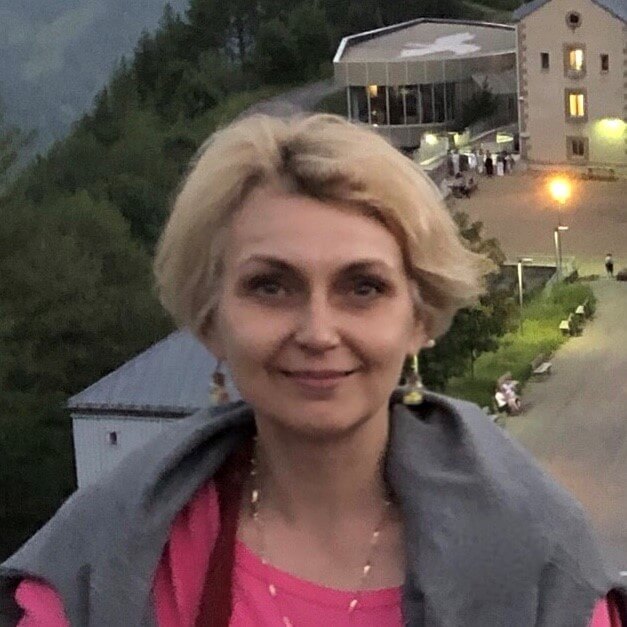
mgr Joanna Zalewska
Institute for Human Development and Education, Department of Young Child Education
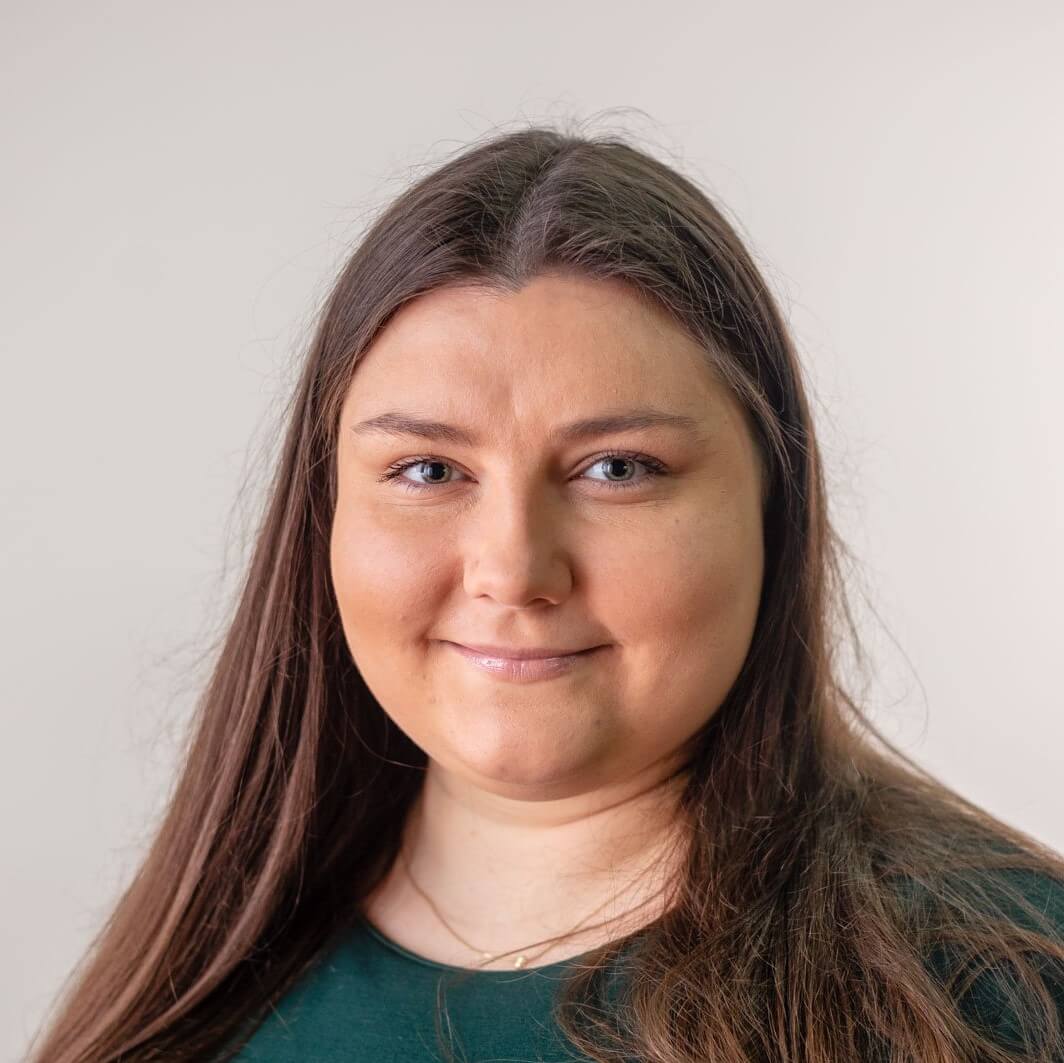
mgr Klaudia Majewska
Conference Secretariat
Institute for Human Development and Education, Department of Young Child Education
Prof. Joanna Głodkowska
Chairwoman of the Committee
Akademia Pedagogiki Specjalnej im Marii Grzegorzewskiej,
Warszawa (PL)
Prof. Paweł Boryszewski
Instytut Profilaktyki Społecznej i Pracy Socjalnej APS, Warszawa (PL)
Prof. Paweł Bronowski
Instytut Psychologii APS, Warszawa (PL)
Prof. Christie L. Cavanaugh, Ph.D.
Clinical Associate Professor and edTPA Coordinator
University of North Carolina Greensboro
Prof. Jonathan Chitiyo
University of Pittsburgh (US)
Prof. Morgan Chitiyo
University of North Carolina (US)
Prof. Maria Chodkowska
Uniwersytet Marii Curie-Skłodowskiej, Lublin (PL)
Prof. Iwona Chrzanowska
Uniwersytet im. Adama Mickiewicza, Poznań (PL)
Prof. PIERO CRISPIANI
Professore Ordinario di Didattica generale e Pedagogia speciale
Direttore scientifico del Centro Italiano Dislessia
UNIVERSITÀ DEGLI STUDI DI MACERATA
Prof. Grażyna Dryżałowska
Uniwersytet Warszawski (PL)
Prof. Szabolcs Fabula
University of Szeged (HU)
Prof. Fabio Ferrucci
University of Molise, Campobasso (IT)
Prof. Anna Firkowska-Mankiewicz
Akademia Pedagogiki Specjalnej im Marii Grzegorzewskiej, Warszawa (PL)
Prof. Zenon Gajdzica
Uniwersytet Śląski, Katowice (PL)
Prof. Sally Goddard Blythe
The Institute for Neuro-Physiological Psychology (GB)
Prof. Su Jan-Lin
National Kaohsiung Normal University (TW)
Prof. Janusz Kirenko
Uniwersytet Marii Curie-Skłodowskiej, Lublin (PL)
Prof. Stanisław Kowalik
Akademia Wychowania Fizycznego, Poznań (PL)
Prof. Lea Kozminsky
Kaye Academic College of Education, Beersheba (IL)
Prof. Amadeusz Krause
Uniwersytet Gdański, Gdańsk (PL)
Prof. Danuta Krzystostoszek-Duch
Instytut Filozofii i Socjologii APS, Warszawa (PL)
Prof. Kuczyńska-Kwapisz
Uniwersytet im. Kardynała Stefana Wyszyńskiego, Warszawa (PL)
Prof. Ewa Maria Kulesza
Instytut Pedagogiki Specjalnej APS, Warszawa (PL)
Prof. Akhilesh Kumar
Indian Institute of Technology (IN)
Prof. Tatiana Viktoryja Lisovskaya
National Institute of Education of Ministry of Education of the Republic of Belarus (BY)
Prof. Maria del Mar Badia
University of Barcelona, Barcelona (ES)
Prof. Olena Martynchuk
Borys Grinchenko Kyiv University, Kyiv (UA)
Prof. Floyd Morris
The University of the West Indies (JM)
Prof. Patricia O'Brien
The University of Sydney, Sydney (AU)
Prof. Agnieszka Olechowska
Instytut Wspomagania Rozwoju Człowieka i Edukacji APS, Warszawa (PL)
Prof. Stefan Paruch
Instytut Edukacji Artystycznej APS, Warszawa (PL)
Prof. Diane Ryndak
University of North Carolina at Greensboro (US)
Prof. Małgorzata Sekułowicz
Dolnośląska Szkoła Wyższa, Wrocław(PL)
Prof. Henryk Skarżyński
Światowe Centrum Słuchu w Kajetanach, Kajetany (PL)
Prof. Andrzej Twardowski
Uniwersytet im. Adama Mickiewicza, Poznań (PL)
Prof. Danuta Uryga
Instytut Pedagogiki APS, Warszawa (PL)
Prof. Miguel Verdugo
University of Salamanca (ES)
Prof. Michael Wehmeyer
University of Kansas (US)
Prof. John Wheeler
East Tennessee State University (US)
Felicia Wilczenski
University of Massachusetts (US)
Prof. Janina Wyczesany
Uniwersytet Pedagogiczny im. Komisji Edukacji Narodowej, Kraków (PL)
Prof. Elżbieta Zakrzewska-Manterys
Uniwersytet Warszawski, Warszawa (PL)
Prof. Marzenna Zaorska
Uniwersytet Warmińsko-Mazurski, Olsztyn (PL)
Prof. Teresa Żółkowska
Uniwersytet Szczeciński, Szczecin (PL)
REGISTRATION
Due to the pandemic situation in Poland and in the world, the conference will be held hybrid based on current legislation. The fee includes a presentation during the conference, access to conference sessions (live), materials, and certificate of active participation in the conference.
The deadline for registration is October 31, 2022.
Due to the international nature of the planned conference, simultaneous interpretation will be provided. Conference registrants may choose in which language they wish to speak.
The fee for participation in the conference should be paid within 14 working days from the date of registration, to the current account of The Maria Grzegorzewska Uniwith a note: “ACCEPTANCE, PARTICIPATION, SOCIAL SOLIDARITY”, name and surname of the person participating in the conference
Account number: 61 2490 0005 0000 4530 3456 2606
IBAN: PL61 2490 0005 0000 4530 3456 2606
BIC/SWIFT: ALBPPLPW
Basic publishing languages: Polish and English.
PROGRAM
CONFERENCE PROGRAMME
| 8:00-9:00 | REGISTRATION | Hall of building C |
| 9:00-9:15 |
A movie from the series THERE IS A HUMAN entitled "ACCEPTANCE"CONFERENCE OPENING
J.M. Rektor APS dr hab. Barbara Marcinkowska, prof. APS Scientific committee chairwoman Prof. dr hab. Joanna Głodkowska |
AULA B |
| LINK DOSTĘPU ONLINE | ||
| 9:15-9:35 | Prof. dr hab. Krzysztof Zaremba | Technology in the Life of Man, Man in the World of Technology |
| 9:35-9:55 | Prof. dr hab. Henryk Skarżyński | I hear today - 30 years of the programme in Poland |
| 9:55-10:15 | Prof. dr hab. Amadeusz Krause | Maria Grzegorzewska's achievements from the perspective of the fight for the scientific identity of contemporary special pedagogy |
| 10:15-10:35 | Prof. Piero Crispiani | Neuroactivation as neurointegration: The paths of inclusion |
| 10:35-10:55 | Prof. dr hab. Maria Chodkowska | There is no cripple - there is a human being...in the roles they roles. Problems of special needs pedagogy in the context of social role theories |
| 10:55-11:15 | Prof. dr hab. Grażyna Dryżałowska | Letters to a young teacher - reminiscences |
| 11:15-11:30 | MUSIC RECITAL AGATA ZAKRZEWSKA |
| 11:30-11:45 |
COFFEE BREAK EXHIBITION |
| 11:45-12:00 | Prof. dr hab. Joanna Głodkowska | Celebrating differences as the value horizon of the 21st century |
| 12:00-12:15 | Prof. Michael Wehmeyer | Securing the success and sustainability of inclusive education in challenging times |
| 12:15-12:30 | Prof. John Wheeler | A history positive behavior supports for persons with disabilities: reflections from the field |
| 12:30-12:45 | Prof. dr hab. Marzenna Zaorska | Respect for human rights as a criterion for the normalisation of life, self-fulfilment, inclusion and social autonomy |
| 12:45-13:00 | Prof. dr hab. Janusz Kirenko | Models of disability in theory and practice of rehabilitation and special education |
| 13:00-13:15 | Prof. Akhilesh Kumar | Impressions of principle of normalization on global inclusive practices |
| 13:15-13:30 | Prof. Sally Goddard Blythe |
The Body Learns Too How the functional relationship between the brain and body helps to form connective highways for the mind |
| 13:30-13:45 | Prof. dr hab. Andrzej Twardowski | Origins, assumptions and advantages of the cultural model of disability |
| 13:45-14:00 | Prof. dr hab. Teresa Żółkowska | Disability from the perspective of posthumanism |
| 14:00-14:15 | Prof. dr hab. Zenon Gajdzica | The Inclusive Education Coordinator - in search of a theoretical basis for a systemic role, on the margins of the SENCo experiences in selected countries |
| 14:15-14:30 | Prof. Nella Nyczkało | The validity of Maria Grzegorzewska's ideas of philosophy and pedagogy of the heart in the conditions of Russian aggression against Ukraine |
| A film from the series THERE IS A HUMAN entitled. “SOLIDARITY” |
| 14:30-15:30 | LUNCH BREAK |
„TO AWAKEN, DEVELOP AND ENRICH INTEREST IN LOOKING AT HUMAN BEINGS AND FORMING A BENEVOLENT ATTITUDE TOWARDS THEM ALWAYS AND EVERYWHERE,
IN EVERY CONTACT, COEXISTENCE AND COOPERATION - THIS IS THE WAY TO THE WELL-BEING OF THE INDIVIDUAL, TO THE DEVELOPMENT OF HARMONY
”
MARIA GRZEGORZEWSKA
MODERATOR: DR HAB. JAN ŁASZCZYK, PROF. APS
SENATE HALL BUILDING C
| 15:30-15:45 |
dr hab. Barbara
Marcinkowska, prof.
APS; dr Diana Aksamit |
Supporting people in crisis - a challenge of today's world |
| 15:45-16:00 | dr hab. Edyta Widawska. Prof. UŚ. | Social relations in a human-rights perspective |
| 16:00-16:15 | dr hab. Dorota Kornas- Biela, prof. KUL | Prenatal diagnosis of child health as a challenge for special education |
| 16:15-16:30 | dr hab. Stanisława Byra, prof. UMCS | Forgiveness and well-being in spouses of people with with physical disabilities |
| 16:30-16:45 | dr Ruth Dorot | The contribution of monuments to educating about Holocaust remembrance and commemoration |
| 16:45-17:00 |
dr Agnieszka Franczyk, dr Weronika Kurcz |
Autonomy of adults with intellectual disabilities - a comparative perspective |
| 17:00-17:15 | dr hab. Magdalena Olempska-Wysocka, prof. UAM | Cognitive and emotional determinants social functioning of children with communication disorders |
| 17:15-17:30 | dr Monika Zima- Parjaszewska | Who cares about social inclusion and independent living of people with disabilities in Poland 2012-2022 |
| 17:30-17:45 | Prof. Larysa Łukianowa | Supporting labour market participation of people with disabilities: a foreign experience from Ukraine |
| 17:45-18:00 | dr Radosław Piotrowicz | A secure future - a model of community support from assistance to support for people with with disabilities in everyday life |
"...FOR IT IS AN EVERLASTING TRUTH THAT BEYOND A MAN'S PROFESSIONAL PREPARATION, BEYOND HIS EDUCATION, THE MOST ESSENTIAL, THE MOST FUNDAMENTAL VALUE
IN HIS WORK IS HIS HUMANITY"
MARIA GRZEGORZEWSKA
MODERATOR: DR HAB. DANUTA URYGA, PROF. APS
AULA B - BUILDING C
| 15:30-15:45 | Prof. dr hab. Bogusław Śliwerski | Disorderly school self-government |
| 15:45-16:00 |
Prof. Autayeva
Akbota; Prof. Bekbayeva Zeinep |
Inclusive education in Kazakhstan: past, present, future |
| 16:00-16:15 |
dr hab. Jacek
Kulbaka, prof. APS; dr Anna Hryniewicka; dr Iwona Czarnecka |
The organisation of special education in Poland in the time of Maria Grzegorzewska. Plans, achievements, shortcomings in the special education system |
| 16:15-16:30 | dr hab. Sławomir Przybyliński, prof. UWM | "Dangerous criminals" as a challenge to the entire community incarcerated |
| 16:30-16:45 |
dr hab. Zdzisław Kazanowski, prof. UMCS dr hab. Sławomir Przybyliński, prof. UWM dr hab. Katarzyna Ćwirynkało, prof. UWM; dr hab. Agnieszka Żyta, prof. UWM |
Assessment of own professional competence to educate a student with disabilities in teachers of mainstream primary schools |
| 16:45-17:00 | dr hab. Rafał Majzner, prof. ATH | Voice disability rates of teachers Of Early childhood education. Research reports |
| 17:00-17:15 | Mgr Zuzanna Narkun | Teachers' sense of self-efficacy in inclusive education: determinants and implications |
| 17:15-17:30 |
dr Wioleta Duda, dr Katarzyna Zalas |
Universal directions universal society |
| 17:30-17:45 | dr Milena Miałkowska- Kozaryna | Social competences of future special educators |
| 17:45-18:00 | dr Katarzyna Skalska | Perceived autonomy and social support of students with physical disabilities |
| 18:00-18:15 | dr Emilia Śmiechowska- Petrovskij | Visual arts education for blind people |
"WE KNOW THAT NO ONE SHOULD BE CROSSED OUT, NO ONE SHOULD BE CONDEMNED,
BECAUSE THERE IS SOMETHING POSITIVE IN EVERYONE, BUT IT IS NECESSARY TO GIVE EVERYONE AND EVERYTHING THE OPPORTUNITY TO BE REHABILITATED THROUGH REALLY RELIABLE AND HONEST WORK,
WHICH WE SO MUCH CARE ABOUT AND NEED"
MARIA GRZEGORZEWSKA
MODERATOR: DR HAB. MAŁGORZATA KUPISIEWICZ, PROF. APS
ROOM 1109 BUILDING A
| 15:30-15:45 |
Prof. Wiaczesław
Zasenko, Prof. Lesia Prochorenko |
Special education in Ukraine: realities and prospects |
| 15:45-16:00 | dr hab. Hanna Żuraw, prof. UPH | Disability in the perspective of anthropology |
| 16:00-16:15 | dr hab. Irena Ramik- Mażewska, Prof. US | Social media as a space for emancipatory activities of persons with disabilities |
| 16:15-16:30 | dr hab. Remigiusz Kijak, prof. UW | Performative research on the sexuality of people with intellectual disabilities |
| 16:30-16:45 | Prof. dr hab. Elżbieta Zakrzewska-Manterys | Mental handicap and equality of subjects |
| 16:45-17:00 |
dr Ewa Grudziewska dr hab. Agnieszka Lewicka-Zelent, prof. UMCS |
Restorative justice an opportunity for acceptance, participation and social solidarity |
| 17:00-17:15 | dr hab. Agnieszka Wołowicz | Participatory research with people with intellectual disabilities |
| 17:15-17:30 | dr Aleksandra Pyrzyk- Kuta | Visual Vernacular - a modern art form combining the Deaf and hearing worlds |
| 17:30-17:45 | dr Patryk Kujan | Ethical dimension of probation work |
| 17:45-18:00 |
Mgr Klaudia Majewska-
Bielska, Mgr Marcin Bielski |
Social and vocational rehabilitation of adults with intellectual disabilities - good practice |
| 18:00-18:15 |
Mgr Katarzyna Kruś, Mgr Mariusz Fila |
Using gamification for professional inclusion of people with learning disorders |
| 18:15-18:30 | Mgr Agnieszka Drewnowska | Assessment and what next? The school and out-of-school situation of of pupils with a special educational needs assessment |
"EVERY PERSON HAS TO GO THROUGH SCHOOL (...) THE BETTER THE TEACHER, THE BETTER THE WORLD AND THE LIFE OF EVERY PERSON WILL BE".
MARIA GRZEGORZEWSKA
MODERATOR: DR HAB. BEATA JACHIMCZAK, PROF. UAM
ROOM 3235 BUILDING C
| 15:30-15:45 | dr hab. Beata Jachimczak, prof. UAM | Specialist Support Centres for Inclusive Education as a transfer of theoretical and practical experience of special education in the new model of education for all for all |
| 15:45-16:00 | dr hab. Agnieszka Olechowska, prof. APS | Education for all as a third space of pedagogical discourse |
| 16:00-16:15 | dr hab. Grzegorz Szumski, prof. UW | Models of teacher collaboration in inclusive classrooms vs.psychosocial development of pupils |
| 16:15-16:30 | dr hab. Ewa Domagała- Zyśk, prof. KUL | Universal design in the context of functional evaluation |
| 16:30-16:45 |
Dr hab. Jolanta
Rzeźnicka-Krupa, prof.
UG; dr hab. Agnieszka Woynarowska, prof. UG |
Education in diversity on the example of the Gdansk model of inclusive education |
| 16:45-17:00 | dr Aneta Kochanowicz | New terminology in inclusive education a chance to changing educational awareness and practice in Poland |
| 17:00-17:15 | dr Beata Skotnicka | Quality inclusive education for all. Good practices and barriers - presentation of nationwide research results |
| 17:15-17:30 |
dr Joanna Doroszuk, dr Karolina Tersa |
Inclusion support network - building alternative programmes supporting educational institutions on the example of education of children with hearing disabilities in Gdańsk |
| 17:30-17:45 |
dr Helena Liwo, dr Katarzyna Materny |
Inclusive education from a teacher's perspective - the search for (un)pretended change |
| 17:45-18:00 | dr Joanna Skibska | Between personalisation of education and inclusive education. Research report |
| 18:00-18:15 | dr Dorota Prysak | "Are we prepared for this?". On the process of inclusion in the Polish school system in the narrative of those (un)consciously implementing inclusion tasks |
"THE BETTER A PERSON HE IS, THE BETTER PREPARED HE IS FOR HIS WORK, THE GREATER HIS KINDNESS TO OTHERS, HIS DEEPER CONCERN FOR THEM AND HIS SENSE OF RESPONSIBILITY FOR HIS WORK,
THE GREATER THE MARK HE WILL LEAVE ON THE SOULS OF CHILDREN"
MARIA GRZEGORZEWSKA
MODERATOR: DR EWA DĄBROWA
ROOM 1207, BUILDING A
| 15:30-15:45 | dr Shaban Darakchi | Gendering moral panic: Anti-gender campaigns in Bulgaria and the attack on women’s rights |
| 15:45-16:00 | dr hab. Agnieszka Żyta, prof. UWM | Circles of support in the opinion of parents of adults with intellectual disabilities |
| 16:00-16:15 | dr Ewa Dąbrowa | Support for refugee children with special educational needs |
| 16:15-16:30 | dr Beata Szurowska | Here is a human being - a Child. A unique person |
| 16:30-16:45 | dr Grażyna Walczak | A community-based model for early childhood development supportin search of optimal solutions |
| 16:45-17:00 | dr Cecilia Zsögön | Educational inclusion of children from migrant or refugee backgrounds: experiences from three border regions |
| 17:00-17:15 |
dr Monika Pyrczak-
Piega, dr Katarzyna Kutek- Sładek |
Between work and family life - selected aspects of family and professional functioning in the opinion of women with disabilities |
| 17:15-17:30 | dr Karolina Kantyka- Dziwisz | The use of music therapy for relaxation and calming of children with intellectual disabilities at the preschool age |
| 17:30-17:45 | dr Magdalena Wałachowska | Tutoring - a method for the self-realisation of the talented student |
| 17:45-18:00 | dr Dorota Lizoń- Szłapowska | Selected aspects of motherhood for women with intellectual disabilities in a research perspective |
| 18:00-18:15 | Mgr Ewa Zając | The right to accessibility as a key to social inclusion for people with with disabilities |
"THE VALUE OF THE CONSTRUCTION OF LIFE ALWAYS DEPENDS FIRST AND FOREMOST ON THE QUALITY OF ITS CONTENT, WHICH DEPENDS ON THE VALUE OF THE HUMAN BEING WHO CREATES, DEVELOPS AND BUILDS IT"
MARIA GRZEGORZEWSKA
MODERATOR: DR HAB. BERNADETA SZCZUPAŁ, PROF. APS
ROOM 1209 BUILDING A
| 15:30-15:45 | Prof. dr hab. Jacek Błeszyński | Good manners versus stress-free parenting in autism |
| 15:45-16:00 | Prof. dr hab. Małgorzata Sekułowicz | Early recognition of autism risk - towards cooperation with family doctors |
| 16:00-16:15 | dr hab. Anna Prokopiak | Autonomy of people on the autism spectrum |
| 16:15-16:30 | dr hab. Małgorzata Walkiewicz-Krutak, prof. APS | Specific learning difficulties and visual impairment |
| 16:30-16:45 | dr hab. Joanna Kobosko | Quality of life and sign language skills amongst people with prelingual deafness using a cochlear implant |
| 16:45-17:00 | Mgr Marta Brennenstuhl-Bludnik | Making space accessible - inclusive design in terms of the senses |
| 17:00-17:15 | dr Aleksandra Berkowska | Needs of adolescents with atopic dermatitis concerning functioning in the school environment |
| 17:15-17:30 | dr Iwona Konieczna | A student-patient with a chronic illness in an institution Perspectives of future special educators Special pedagogy in relation to the humanistic paradigm |
| 17:30-17:45 | dr Blanka Ewa Poćwiardowska | The preventive dimension of the executive functions of children 3-5 years of age |
| 17:45-18:00 | NITZA Davidovitch | Returning to the academic campus as the end of the Covid-19 pandemic: Students perceptions of academic teaching and learning |
| 18:00-18:15 | Mgr Julia Serwa | The therapist's role in developing an individual system of AAC communication system in working with children with with multiple disabilities |
INCLUSIVE EDUCATION - NEEDS AND CHALLENGES
MODERATOR: DR LIDIA ZABŁOCKA-ŻYTKA
ROOM 2223 BUILDING
| 15:30-15:45 |
dr Lidia Zabłocka-Żytka, dr Katarzyna Smolińska, dr Dominika Wiśniewska dr Małgorzata Woźniak- Prus |
Inclusive education - needs and challenges |
| 15:45-16:00 | Eugenia Tragaki, Med, MSc, Labriana Tsiakpini | Inclusive education in Greece – common challenges |
„KINDNESS BEGETS KINDNESS, FRIENDSHIP BEGETS FRIENDSHIP”
MARIA GRZEGORZEWSKA
MODERATOR: DR KASPER SIPOWICZ
ROOM 2225 BUILDING B
| 15:30-15:45 | Prof. Szabolcs Fabula | The contribution of geography to the inclusion of people with disabilities: reflections from Eastern Europe |
| 15:45-16:00 | Prof. Morgan Chitiyo | Securing the Success and Sustainability of Inclusive Education in Challenging Times |
| 16:00-16:15 | dr Małgorzata Myl | The right to education as a fundamental right of people with disabilities. A legal international study |
| 16:15-16:30 | PhD Barbara Barabaschi | Guidance to work as a tool to increase social cohesion and active participation within disadvantaged local communities |
| 16:30-16:45 | Mgr Nurbyek Razukhan | The current and future development of accessible digital technology in the field of education in Mongolia |
| 16:45-17:00 | dr Katarzyna Jas | Identity types of people in late adulthood living in the Polish and Czech parts of Cieszyn Silesia |
| 17:00-17:15 | dr Małgorzata Ewa Łobacz | Encountering the person experiencing suffering and the existential fragility of every human being |
| 17:15-17:30 |
Lidia Magdalena
Matwij, Katarzyna Anna Smyk |
Persons on the autism spectrum in students' perception |
| 17:30-17:45 | Mgr Klaudia Ferenc | Selected needs of caregivers of people with disabilities |
| 17:45-18:00 | Msc Emese Tury-Angyal | Online political news sharing on the Hungarian Facebook |
| 18:00-18:15 | dr Anna Bieganowska- Skóra | A person with a disability in a society for everyone: awareness, accessibility and comfort |
„"(...) TO DO SOMETHING WORTHWHILE, YOU HAVE TO BE SOMEONE INTERNALLY, YOU HAVE TO HAVE YOUR OWN LIFE, YOUR OWN WORLD, YOU HAVE TO HAVE A STRONG FOUNDATION OF CONVICTION
TO BELIEVE IN SOMETHING PASSIONATELY, TO SERVE SOMETHING PASSIONATELY ”
MARIA GRZEGORZEWSKA
MODERATOR: DR EWA WAPIENNIK-KUCZBAJSKA
ROOM 2122 BUILDING B
| 15:30-15:45 |
Prof. Diane Lea Ryndak
Heather Coleman
University of North
Carolina at Greensboro Kirsten Lansey University of Utah Deborah Taub Somer Matthews University of North Carolina at Greensboro |
Inclusive Education Curriculum Impact on Students with Complex Extensive Support Needs: Thoughts on Acceptance, Participation, and Social Solidarity |
| 15:45-16:00 | dr hab. Iwona Myśliwczyk, prof. UWM | Recognition as a key category in the process of (re)construction of their identity by people with with intellectual disabilities |
| 16:00-16:15 |
dr Agnieszka Muchacka-
Cymerman, dr Katarzyna Tomaszek |
The mediating role of psychological well-being and burnout schooling in the relationship between relational resources and adolescent risk behaviors during the COVID pandemic 19 |
| 16:15-16:30 | dr Bogumiła Bobik | Remote psychological-educational assistance and selected rights of the child with intellectual disabilities |
| 16:30-16:45 | Mgr Kuralay Abdullina (Almaty, Kazakhstan) | Features of the formation of social activity of hearing- impaired schoolchildren by means of kazakh decorative and applied art |
| 16:45-17:00 | dr Katarzyna Gajek | Counteracting the dehumanisation of the LGBTQIA community in the activities of parents of non-normative people |
| 17:00-17:15 | dr Aleksandra Załustowicz | Assistive application "Phasis" for adults with neurological deficits |
| 17:15-17:30 | Mgr Regina Korzeniowska | Supporting schools during a pandemic - the role of psychological-educational counselling centres |
| 17:30-17:45 |
dr Joanna Waszczuk, Agata Żeleźnica, Ewa Lipińska |
The importance of the interaction between the educational institution and the child's family in shaping an inclusive society |
| 17:45-18:00 | Mgr Agnieszka Lewko | (Self-)awareness of children in ASC regarding autism spectrum/disability |
| 18:00-18:15 | dr Magdalena Wójcik | Emotional development levels of preschool children on the autism spectrum - from cognition to understanding and social support |
| 18:15-18:30 | dr Aneta Lew- Koralewicz | A student on the autism spectrum during the Covid-19 pandemic |
| 18:30-18:45 | Mgr Marta Mieszała | The sensory integration method as a method for alleviating school difficulties of children at the beginning of their early education |
„SO YOU TOO ARE CLOSE TO ME, ALTHOUGH WE ARE FAR APART AND MAY NEVER EVEN MEET IN PERSON. I WOULD LIKE TO KNOW WHY YOU ARE EMBARKING ON THIS PATH? WHAT IS IT THAT WILLS YOU THERE, THAT CALLS YOU THERE, THAT PERHAPS EVEN TAKES YOU IN THIS DIRECTION? DO YOU SEE THE ENORMITY OF THIS WORK, DO YOU UNDERSTAND ITS IMPORTANCE IN BUILDING OUR FUTURE? DO YOU APPRECIATE THE IMPORTANCE OF EACH TEACHER'S PARTICIPATION IN THE WHOLE OF THIS WORK, AND THEREFORE YOUR OWN PARTICIPATION IN THIS WORK?"
MARIA GRZEGORZEWSKA
MODERATOR: DR URSZULA GOSK-SOBAŃSKA
ROOM 1010 BUILDING A
| 15:30-15:45 | Prof. dr hab. Iwona Chrzanowska | The student with special educational needs in inclusive education in a time of pandemics |
| 15:45-16:00 | dr hab. Sławomir Olszewski, prof. UJK | Studies as a space for the creation of professional identity of special educators |
| 16:00-16:15 | dr hab. Katarzyna Parys, prof. UJK | Creating further sub-disciplines of special pedagogy - a reflections on the example of pedagogy of people with disability in old age (geragogy special education) |
| 16:15-16:30 | dr Katarzyna Pawelczak | The cultural model of disability as an Analytical tool |
| 16:30-16:45 |
dr Maria
Aleksandrovich, dr Grzegorz Piekarski |
International teachers for tomorrow’s school – presentation of reseach results |
| 16:45-17:00 | dr Mariusz Chrostowski | "Humanise" the Polish school! - The idea of pastoral care as an opportunity to humanise the school environment |
| 17:00-17:15 | dr Katarzyna Jadach | Indicating teachers' professional diligence - an attempt at systematisation (with particular reference to the care given to socially maladjusted pupils and pupils at risk of maladjustment socially maladjusted and at risk of maladjustment) |
| 17:15-17:30 | dr Aleksandra Wójciak | Problematic use of the Internet by adolescents with mild intellectual disabilities and selected sociodemographic variables |
| 17:30-17:45 | Prof. Susanne Benzler | Together in Diversity. Challenges for pedagogy and society in multicultural Germany |
| 17:45-18:00 | dr Anna Kwatera | Good Behaviour Game prevention programme in working with children with special educational needs. Inclusive class - case study |
„SO MANY DIFFERENT SECRETS ARE IN THE HEARTS OF OUR CHILDREN AND YOUTH - AND THEIR HEARTS, AND THEIR THOUGHTS, AND THEIR STRIVINGS, AND THE MOTIFS FOR THEIR ACTIONS, AND THE MOTIFS FOR THEIR ATTITUDE TOWARDS PEOPLE AND SURROUNDING PHENOMENA”
MARIA GRZEGORZEWSKA
MODERATOR: DR MARTA POREMBSKA
ROOM 1107 BUILDING A
| 15:30-15:45 |
dr hab. Małgorzata
Czerwińska, prof. UZ; Mgr Lilianna Dorota Kurek |
"I create, therefore I am" between acceptance and participation - about the therapeutic value of literary creation of women with disabilities |
| 15:45-16:00 | dr hab. Danuta Kopeć, prof. UAM | Mentalization in the process of supporting parents of people with profound intellectual disabilities |
| 16:00-16:15 | Mgr Oksana Pietraszek | Parental attitudes towards children with intellectual disabilities Intellectual disability in Poland and Ukraine |
| 16:15-16:30 | Mgr Sylwia Zielińska | The human right to health - the challenges of today. Refunding of costly therapies for rare diseases |
| 16:30-16:45 | Weronika Górska | New technologies in improving the quality of life of people with disabilities |
| 16:45-17:00 | dr Edyta Nieduziak | Narratives of recognition in the theatre of people with disabilities |
| 17:00-17:15 |
dr Beata Prościak, Mgr Halina Samko, Marcin Prościak |
Balancing pupils' attention deficit through the use of an innovative activating method in teaching - gamification of errors and facts (taking SEN into account) |
| 17:15-17:30 | dr Jolanta Lipińska-Lokś | "You Can Find Yourself" - the importance of staying in a Youth Sociotherapy Centre in the life of a young person at risk of social maladjustment |
| 17:30-17:45 | Mgr Anna Siemaszko | Door-to-door project as an opportunity to counteract social exclusion |
| 17:45-18:00 | Mgr Kinga Dziewiątkowska- Kozłowska | Snoezellen as a safe emancipatory space - for everyone |
„THINK, YOU ARE ALREADY IN THIS WORLD OF WORK, SO YOUR WORK IS IMPORTANT BECAUSE IT FULFILLS A PART OF THIS MOMENTOUS TOTALITY”
MARIA GRZEGORZEWSKA
MODERATOR: DR HAB. ANNA PERKOWSKA-KLEJMAN, PROF. APS
HALL OF AULA B
| dr hab. Ewa Kochanowska, prof. ATH | Early childhood education teachers' diagnostic competence in working with children with special educational needs. Research report | |
|
dr hab. Monika Miczka-Pajestka, prof. ATH Mgr Joanna Lorenc |
Subjective responsibility in post-modern education | |
| dr Sabina Pawlik | Presence, voice and culture of people on the autism spectrum on the Polish Internet | |
| Mgr inż. Dominik Czerkawski | University activities for the sustainable development of the academic community - PUT case study | |
| dr Małgorzata Kosiorek | Forms of teacher resistance as a manifestation of civic engagement in the democratisation of education | |
| dr Agnieszka Kulik-Jęsiek | From acceptance to interaction and understanding. Practical aspects of supporting people with autism and their families. | |
| Mgr Domonika Machnio | Determinants of lifelong scouting activities on the example of the Senior Circle of the Beskid Scout Association | |
| Mgr Marzena Jakubek | SCHOOL OF DREAMS-Specialised Centre for Supporting Inclusive Education in Ropczyce | |
| dr Karolina Mroczyńska | Stereotyping of people on the autism spectrum and the language of mathematics | |
| dr Anna Samolej | The image of justice in the interpersonal message. Clinical perspective | |
| dr Magdalena Bełza-Gajdzica | Acceptance of the hearing impaired student -are you sure? | |
| dr Marlena Duda | Autonomy and participation (IPA) in research on people with physical disabilities - polish reports | |
| dr Justyna Wojciechowska | Communication attitude as acceptance in social dialogue | |
| dr Małgorzata Moszyńska | Strategie postępowania diagnostycznego, opiekuńczego oraz terapeutycznego wobec osób autystycznych |
| „LOVE IS A LEVER IN LIFE, IT'S LIKE THE DEEPEST IMPULSE OF OUR NATURE FOR HARMONY, FOR ORDER, FOR CONNECTION BETWEEN PEOPLE, FOR A KINDNESS TO THEM” MARIA GRZEGORZEWSKA | ||
|
Prof. dr hab. Joanna Głodkowska
dr hab. Ewa Maria Kulesza, prof. APS |
||
| A movie from the series THERE IS A HUMAN titled "PARTICIPATION" |
GUIDELINES
Please send us your paper. It should be sent as a .doc or .rtf file and include your full name, Affiliation, email address, ORCID number. Title, abstract of 150-250 words, and key words are important for our review process. The paper should aim at 11-12 pages in length, formatted in APA7 style, followed by the list of References in alphabetical order. The main text should be prepared in Times New Roman, font 12, space between the lines set at 1.5. In text references should be placed in brackets. Works cited in languages other than English should be followed by the English translation [in square brackets].
Please send us your poster in PDF format. It should include title, coherent presentation of main points. Please remember that in this form of communication you may not have an opportunity to discuss or explain the content so it must be selfexplanatory. The poster should be in English.
During the hours (to be determined) Central European Time (Warsaw) there will be live sessions. During the speeches, it will be possible to present a 10-minute online presentation, followed by a discussion. Your internet connection will have to be tested before the conference. If your internet connection is unstable, you can choose the video option instead, because then you have full control over the broadcast
CONFERENCE VENUE
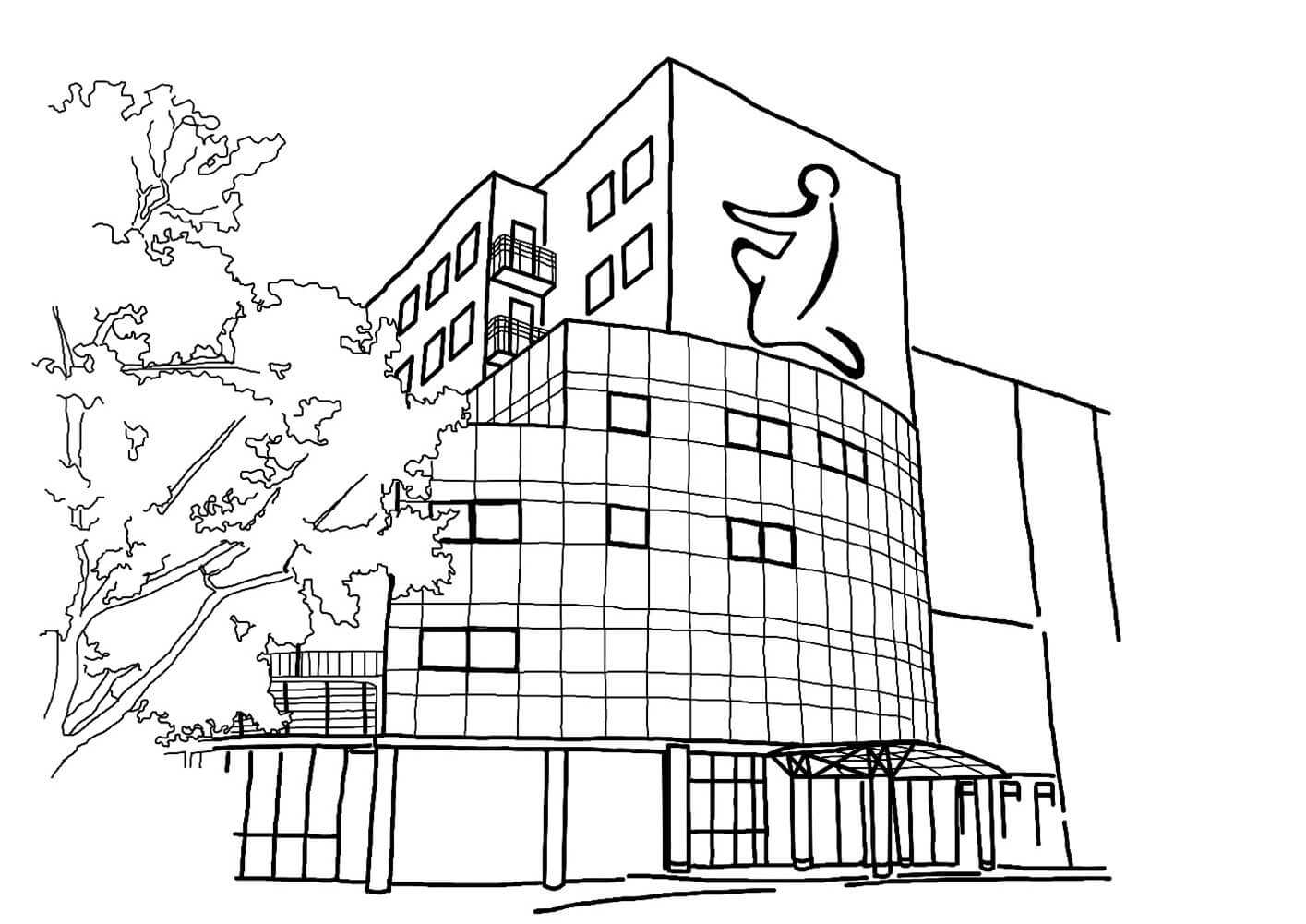
The conference will take place at The Maria Grzegorzewska University
in Warsaw in hall C of Janusz Korczak
(first floor, building C).
The Maria Grzegorzewska University is located in Warsaw,
which is an obligatory point on the map of visiting Poland.
We invite you to familiarize yourself with detailed information about Warsaw.
The organisers do not provide accommodation as
part of the conference fee. We encourage you to familiarise yourself with the extensive accommodation base of Warsaw.
PROPOSAL OF HOTELS FOR OUR GUESTS
- Hotel Warszawa - Powstańców Warszawy 9, Warszawa
- Vienna House Mokotow Warsaw - Postępu 4, Warszawa
- Golden Tulip Warsaw Airport - Krakowska 235, Warszawa
- Boss - Żwanowiecka 20, Warszawa
- Radisson Collection - Grzybowska 24, Warszawa
- Mamaison Hotel Le Regina - Kościelna 12, Warszawa
- Victor Pruszków DeSilva - Andrzeja 1, Pruszków
- Ibis Warszawa Reduta - Bitwy Warszawskiej 16, Warszawa
- Radisson Blu Sobieski - Artura Zawiszy 1, Warszawa
- Holiday Inn Express Warsaw - The HUB - Rondo Ignacego Daszyńskiego 2a, Warszawa
- Hilton Warsaw Hotel & Convention Centre - Grzybowska 63, Warszawa
- Leonardo Royal Hotel Warsaw - Grzybowska 45, Warszawa
- Nyx Hotel Warsaw By Leonardo Hotels - Chmielna 71, Warszawa
- Hampton by Hilton Warsaw City Centre - Wspólna 72, Warsaw
- Arche Hotel Krakowska - Krakowska 237, Warsaw
- The Westin Warsaw - Jana Pawła II 21, Warsaw
PATRONAGE
Contact
The Maria Grzegorzewska University
ul. Szczęśliwicka 40, 02-353 Warszawa
konferencja100@aps.edu.pl
For other information, please contact the Conference Secretariat:
M.A. Klaudia Majewska

